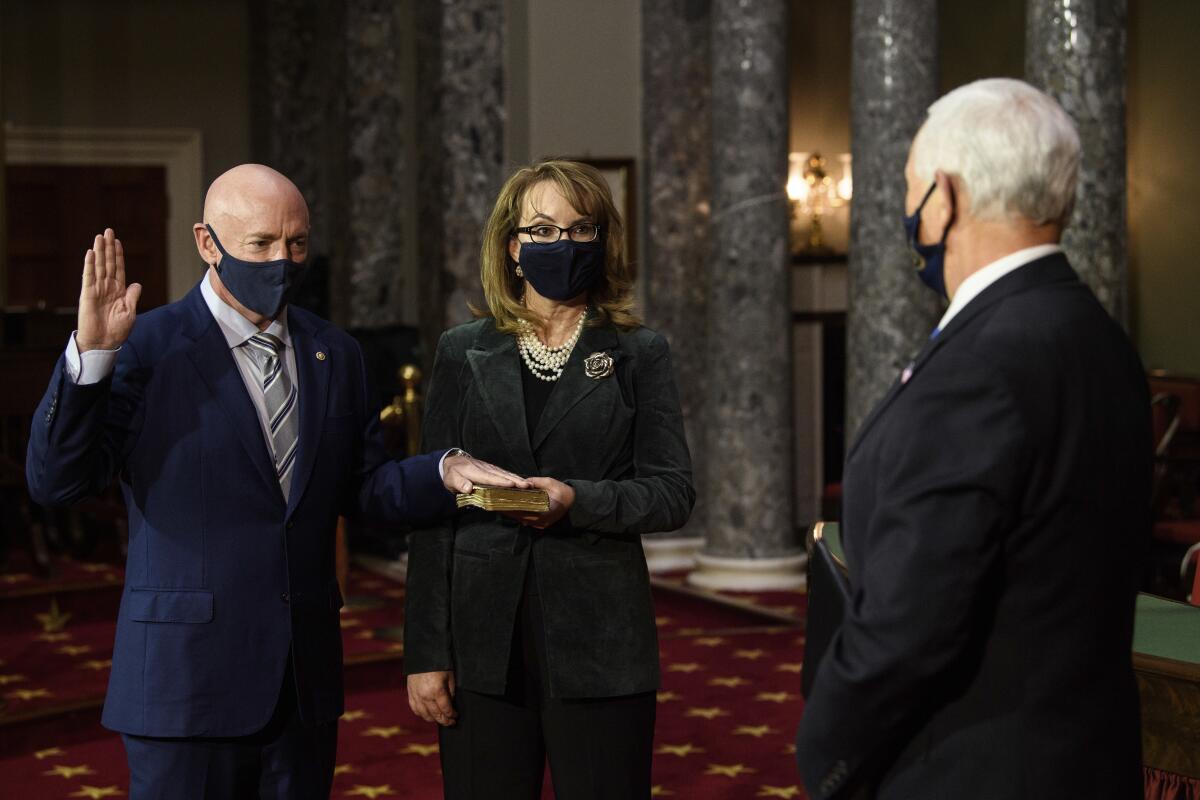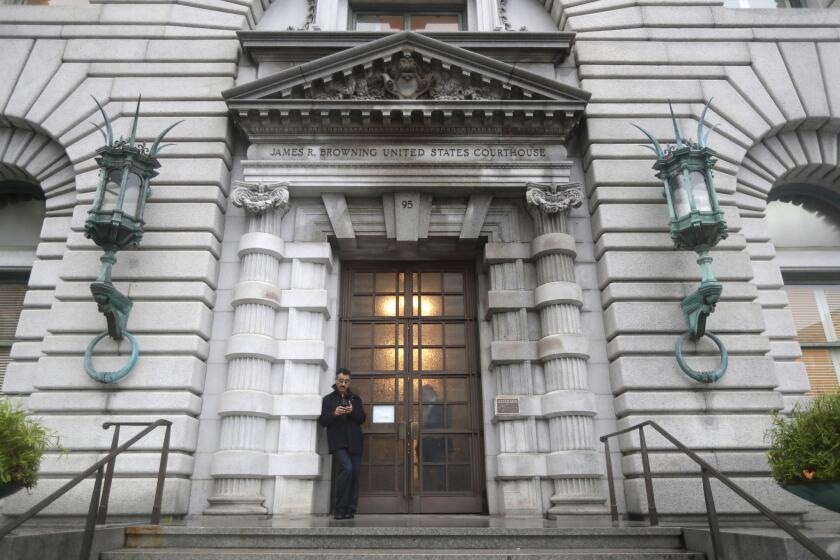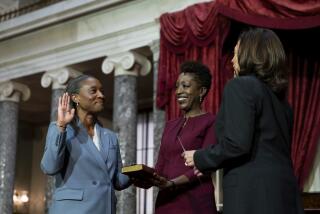Arizona’s Mark Kelly is sworn as newest Democratic senator, narrowing GOP edge

WASHINGTON — Democrat Mark Kelly was sworn in as Arizona’s newest U.S. senator on Wednesday, narrowing Republican control of the chamber and underscoring his state’s shift from red to blue.
Kelly, 56, a former astronaut, defeated GOP Sen. Martha McSally in last month’s election, making her one of only three incumbents to lose. By taking office, he reduced the Republican edge in the Senate to 52-48.
That will have scant impact on Majority Leader Mitch McConnell’s control over the chamber for the final month of this congressional session. But it sets the stage for two pivotal Jan. 5 Senate runoff elections in Georgia.
If Democrats win both, they will forge a 50-50 tie (including two independents who caucus with the Democrats) and take effective control of the chamber because Vice President-elect Kamala Harris would cast tiebreaking votes.
Kelly was sworn in by Vice President Mike Pence. Both men wore masks and bumped arms in congratulations when the oath was over. Among those watching from the visitors’ gallery were his wife, former Rep. Gabrielle Giffords (D-Ariz.), and Scott Kelly, his twin brother and fellow retired astronaut.
Kelly’s Arizona colleague, Democratic Sen. Kyrsten Sinema, held the Bible on which he took his oath. In what may be a Senate first for such ceremonies, Sinema, known for dramatic fashion, wore a zebra-pattern striped coat and had purple hair, or perhaps a wig. Kelly and Pence later reenacted the ceremony in the Old Senate Chamber with Giffords holding the Bible at her husband’s side.
A top Georgia election official has lashed out angrily at the rhetoric surrounding the election and the threats of violence that have resulted.
Kelly’s Senate arrival marks a political milestone for Arizona, which has two Democratic senators for the first time since 1953, when GOP Sen. Barry Goldwater took office.
In other evidence of Arizona’s political shift, the state backed President-elect Joe Biden last month, the first time it was carried by a Democratic presidential candidate since 1996.
McSally was appointed to her seat in 2019 to replace the late GOP Sen. John McCain. Kelly will now fill the rest of McCain’s six-year term, meaning he will face reelection in 2022.
Kelly will be parachuting into a fractious lame-duck session in which lawmakers and President Trump are so far deadlocked over whether to provide a new COVID-19 relief package. They’re also trying to address year-end budget work and a defense policy bill.
Kelly cast himself as a problem-solving centrist during his campaign. His slender, 2-percentage-point victory over McSally suggests he will be part of Democrats’ moderate wing.
In what was one of the country’s most expensive Senate races, Kelly raised $89 million. That was second only to the $108 million collected by defeated South Carolina Democratic candidate Jaime Harrison, according to the nonpartisan Center for Responsive Politics.
Veteran federal judges were holding off on retirement until Trump lost. Now there’s a backlog and no clear path for Biden to replace them.
Republican Cory Gardner of Colorado and Democrat Doug Jones of Alabama were the only other Senate incumbents defeated last month.
The son of two police officers, Kelly as an astronaut flew four space missions, including time aboard the International Space Station. He was also a Navy pilot who flew combat missions during the Persian Gulf War in the early 1990s.
Giffords was grievously wounded in a 2011 mass shooting in Tucson in which six people were killed and a dozen others hurt. She and Kelly became leading figures in the national effort to strengthen gun control laws.
“Great day, excellent day,” Giffords told reporters afterward.
Kelly is the fourth astronaut to be elected to Congress. John Glenn was a Democratic senator from Ohio and Harrison Schmitt was a GOP senator from New Mexico. Republican Jack Swigert was elected to the House from Colorado, but died of cancer before taking office.
More to Read
Get the L.A. Times Politics newsletter
Deeply reported insights into legislation, politics and policy from Sacramento, Washington and beyond. In your inbox three times per week.
You may occasionally receive promotional content from the Los Angeles Times.












